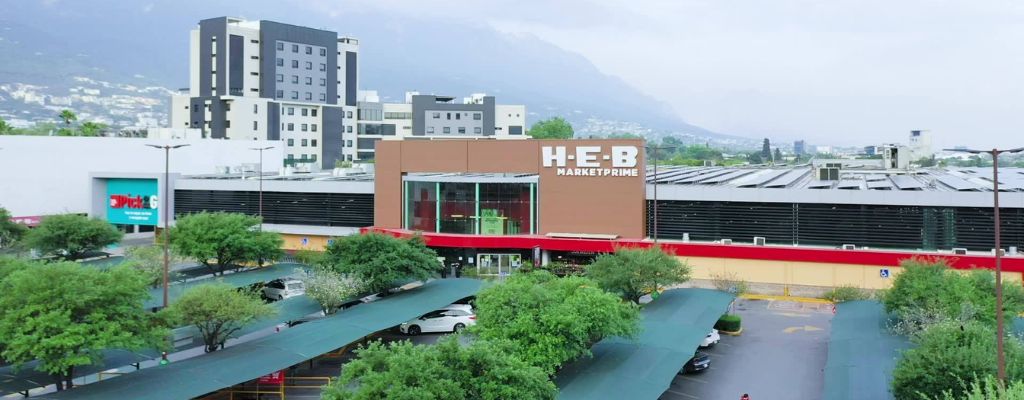Grocery shopping is a necessity of life, but as our world evolves, so too must the way we approach this everyday task. Enter H-E-B, a supermarket chain that is leading the charge in sustainable solutions for the future of grocery shopping. From eco-friendly packaging to locally sourced products, H-E-B is revolutionizing the way we shop for food. Join us as we explore how H-E-B is paving the way for a more sustainable and environmentally conscious future in the grocery industry.
Introduction: Embracing Sustainability in Grocery Shopping
As concerns about environmental sustainability grow, consumers are increasingly seeking eco-friendly options in all aspects of their lives, including grocery shopping. H-E-B, a leading grocery retailer, has emerged as a pioneer in adopting sustainable solutions to meet these demands. This blog explores how H-E-B is shaping the future of grocery shopping through innovative sustainability initiatives that prioritize environmental responsibility and consumer well-being.

Commitment to Renewable Energy: Powering Stores with Clean Energy
H-E-B has made significant strides in reducing its carbon footprint by investing in renewable energy sources. The company has implemented solar power installations across its stores and distribution centers, harnessing the energy from the sun to reduce reliance on fossil fuels. By embracing solar energy, H-E-B not only lowers its environmental impact but also demonstrates its commitment to sustainability leadership in the grocery industry. These efforts contribute to a cleaner energy future while promoting sustainable practices within the communities it serves.
Sustainable Packaging: Reducing Waste with Eco-Friendly Solutions
In response to growing concerns about plastic waste, H-E-B has implemented sustainable packaging initiatives aimed at reducing environmental impact. The company has prioritized the use of recyclable and biodegradable materials for its private label products, minimizing the use of single-use plastics and non-recyclable packaging. Additionally, H-E-B encourages customers to bring reusable bags and offers incentives for choosing eco-friendly packaging options. These efforts not only help mitigate plastic pollution but also empower consumers to make sustainable choices while shopping for groceries.
Local Sourcing: Supporting Sustainable Agriculture and Communities
H-E-B is committed to supporting local farmers and suppliers who adhere to sustainable agricultural practices. By sourcing a significant portion of its products locally, H-E-B reduces transportation emissions and supports regional economies. The company works closely with farmers to promote responsible land management, water conservation, and biodiversity preservation. Through these partnerships, H-E-B ensures that its customers have access to fresh, high-quality produce while promoting sustainable agriculture and community resilience.
Waste Reduction Initiatives: Minimizing Food Waste and Maximizing Efficiency
Food waste is a significant issue in the grocery industry, and H-E-B has implemented comprehensive initiatives to address this challenge. The company donates surplus food to local food banks and shelters through its Food Bank Assistance Program, reducing food waste while supporting communities in need. Additionally, H-E-B has adopted innovative technologies and practices to optimize inventory management and minimize spoilage throughout its supply chain. These efforts not only reduce environmental impact but also enhance operational efficiency and sustainability across H-E-B stores.
Green Building Practices: Designing Eco-Friendly Stores
H-E-B incorporates green building practices into the design and construction of its stores, aiming to achieve LEED (Leadership in Energy and Environmental Design) certification. The company prioritizes energy-efficient lighting, heating, and cooling systems, as well as sustainable building materials and water-saving fixtures. By building eco-friendly stores, H-E-B demonstrates its commitment to environmental stewardship and creates healthier shopping environments for customers and employees alike. These green building practices showcase H-E-B’s dedication to reducing its environmental footprint while enhancing the overall shopping experience.
Consumer Education and Engagement: Empowering Customers to Make Sustainable Choices
H-E-B educates and engages customers in sustainable shopping practices through various initiatives and campaigns. The company provides information on eco-friendly products, sustainable packaging options, and tips for reducing waste at home. H-E-B also collaborates with environmental organizations and community groups to raise awareness about sustainability issues and promote responsible consumption habits. By empowering customers with knowledge and resources, H-E-B encourages widespread adoption of sustainable practices that contribute to a greener future.

Conclusion: Leading the Way Towards a Sustainable Future
In conclusion, H-E-B is at the forefront of transforming grocery shopping through innovative sustainability initiatives that prioritize environmental responsibility and consumer well-being. From investing in renewable energy and implementing sustainable packaging solutions to supporting local sourcing and reducing food waste, H-E-B demonstrates its commitment to sustainability leadership in the grocery industry. By embracing green building practices and engaging consumers in sustainable education, H-E-B empowers individuals to make informed choices that contribute to a healthier planet. As H-E-B continues to pioneer sustainable solutions, it inspires other retailers and industries to follow suit, creating a brighter and more sustainable future for generations to come.
